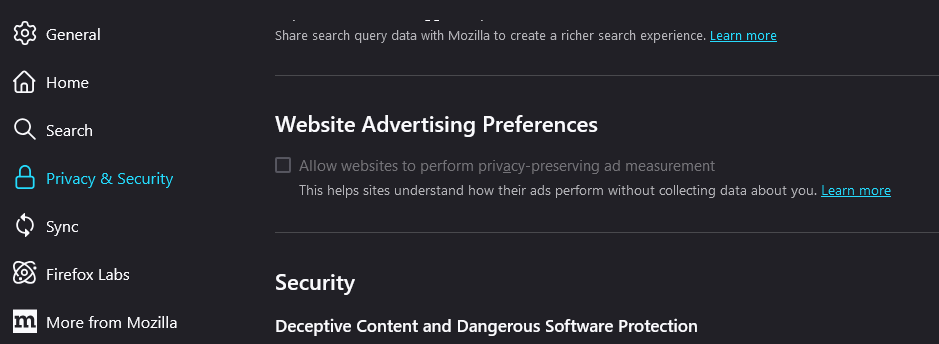

Their acquisition of Anonym was all about acquiring the feature this article is about, PPA. Anonym created PPA. In fact Anonym seems to have been created for the explicit purpose of creating this privacy-respecting system as an alternative to cross-site tracking cookies. I see no reason to doubt Mozilla’s intentions here.














Look, let’s not be picky here